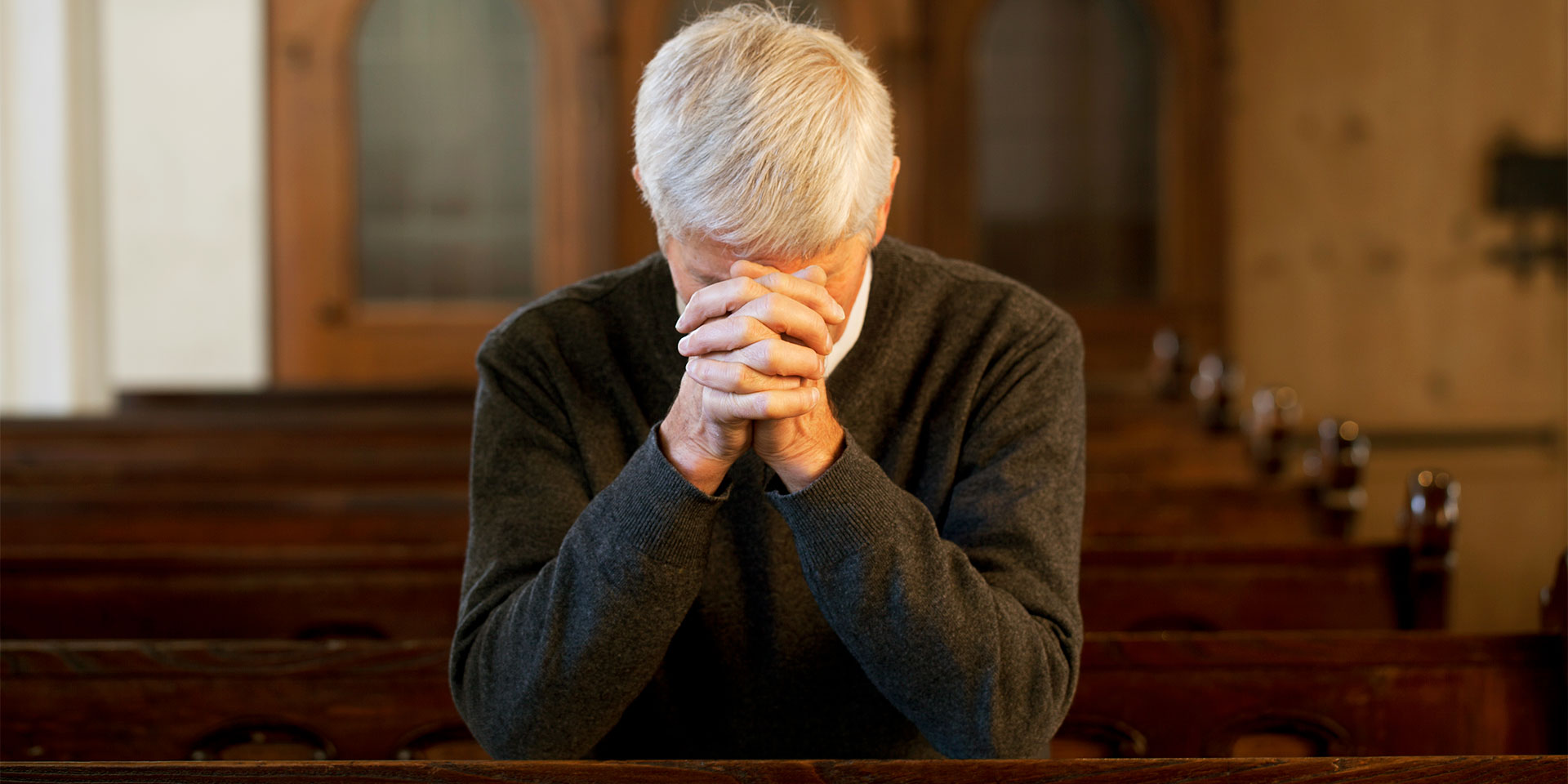The dissonance between what church representatives say and what they do, the crises caused by sexual scandals, tolerating sin, not taking responsibility for mistakes and hiding them, and selling spiritual gifts for money, are just a few of the reasons why people say they’re disappointed in the Church.
The mysterious dialectics of the human soul that places, on the one hand, its expectations of the Church, and, on the other hand, reality, makes the gap between them even larger. If humans—these created beings who are limited and sinful—are disappointed when they look at the Church, what does Jesus feel when He looks at it today? If it cannot even fulfil the expectations of men, how can the Church live up to God’s expectations?
Jesus has no expectations of His Church
Resignation has become a defence mechanism in the face of daily challenges and disappointments. Numbing the human spirit when it comes to its expectations and desires shields humans from the suffering caused by disappointment. No one can fail us if we have no expectations. Does this phenomenon include the way Jesus relates to the Church? How would we describe Jesus if we knew that He had no expectations of His Church?
Disappointment is humans’ personal, inner answer to factors that determine failure.
From this perspective, no one can trigger disappointment in one’s fellow man, this being the responsibility of the disappointed one. In a limited sense, disappointment is recognising the failure to interpret reality correctly and to foresee or determine it. Jesus Christ is God; that is, the superlative being in the universe. He is not only wise, but omniscient. The Bible declares: “Remember the former things, those of long ago; I am God, and there is no other; I am God, and there is none like me. I make known the end from the beginning, from ancient times, what is still to come” (Isaiah 46:9-10). From this perspective God has no expectations of His church that would cause Him to be disappointed. Not because He does not believe in it, nor due to a defence mechanism, but because He knows the future.
Jesus is omniscient
God’s omniscient nature shifts our attention towards the spiritual dimension of reality. In the Gospel according to John, the Bible declares that Jesus has “other sheep that are not of this sheep pen” (John 10:16). At the same time, some “went out from us, but they did not really belong to us. For if they had belonged to us, they would have remained with us; but their going showed that none of them belonged to us” (1 John 2:19). In other words, Jesus’ Church has a spiritual and invisible dimension. Not all who are in it make it what it is, and as for those who are outside of it, one cannot be certain that they are really outside of it.
God’s invisible church is, at the same time, supratemporal.
Just as Jesus’ sacrifice was brought, in God, before the creation of the world (see Revelation 13:8), those who are called, chosen, and known by God can be a part of God’s kingdom, although they are not part of it at this time. Therefore, the Church has always been clean because it will be victorious. Through Jesus’ sacrifice and through its transformation from a fighting into a conquering church, His declaration regarding its righteousness makes us regard the present as clean and righteous, regardless of its shortcomings and mistakes. In other words, the evil either does not belong to the Church, or it is in the process of being transformed into His image. Jesus looks at His Church and sees in it what it will become. Jesus looks at the Church joyfully.
Jesus looks at His Church with compassion
The image of the shepherd that leaves the 99 sheep in the fold and goes out to seek the lost one emphasizes Jesus’ feelings towards His Church. The lost, rebel sheep was once part of the flock. From this perspective, the Church is presented as a place that has been set apart for the spiritual growth of believers.
Neither their fall, failure, or sin are good enough arguments for someone to be thrown out of the flock.
Jesus came to Earth for the sinners (1 Timothy 1:15-17) and from them He chose 12 as the initial core of His Church. When it describes the Church across the ages, the book of Revelation presents it as spiritually dead, lacking its first love, instructed by false teachers, self-deceiving, and corrupt. All this time, however, Jesus sees it as part of His body (1 Corinthians 12:12-26) and His heart’s bride (2 Corinthians 11:2). When He looks at the Church, Jesus feels compassion.
Jesus looks at His Church with understanding
Both the Old and the New Testaments describe the ideal human answer to God’s kindness as different from one person to another. Even in the case of Jewish sacrifices, the standard was not rigid. Even the slaughtered lambs could be replaced if someone was poor, and the quantities of flour could be even smaller (Leviticus 14). According to this perspective, there’s no one Jesus is more appreciative of than the widow who gave away her last penny.
Although so little, no one can ever offer more.
God requires what humans treasure most, or what they can do best. This perspective allows no one to sit on God’s judgement chair and, at the same time, it reflects His divine manner of relating to His people. When He looks at His Church, Jesus looks at it with understanding.
Jesus looks at His Church with love
This type of relationship between God and man is also found in His relationship with the Church. The Church’s journey to perfection is conditioned by light and might. We notice that some of God’s declarations regarding the men of the Bible or the people of Israel, in different stages, present these as being far from the scriptural ideal: David is a man after God’s heart, although few have committed sins like he did. Noah, the righteous man of his time, gets drunk and is caught in a compromising sexual situation. Peter, a pillar of the Christian church, swears he has nothing to do with Christ. Despite all this, at the climax of His struggle, when all His disciples had left Him, Christ looked at Peter and sent him His love. When He looks at His Church, Jesus feels love.
Jesus looks at His Church with justice
In the history of religious beliefs one may notice an evolution, both of religious behaviours and of the understanding of the divine relationship. Concepts and behaviours such as polygamy, holy wars, conquests, the law of retaliation, sanitary reform, righteousness by faith, the prophecies in Daniel and Revelation, and God’s Kingdom, are today understood in a new light. In each stage of the Church, Jesus looks at it with justice—judging it by its shortcomings and by the light it has received.
The church of the remnant or the church of Laodicea?
John’s Revelation identifies two opposing churches. The large one is apostate and persecutes the one of the remnant, which fulfils all of God’s commandments, has the testimony of Jesus, is guided prophetically, has the faith of Jesus and is longsuffering (Revelation 12-14). The church of the remnant belongs to God (Revelation 14:1, 3-4), its worship is not false. It follows the Lamb, proclaims the message of the three angels, and is blameless before God.
In Revelation, the church of the end times is also called the “remnant” or “Laodicea”.
The two are opposing symbols. Although there is an overlap between the church of the remnant and the church of Laodicea, the characteristics of the two descriptions are totally different. “I know your deeds, that you are neither cold nor hot. I wish you were either one or the other! So, because you are lukewarm—neither hot nor cold—I am about to spit you out of my mouth. You say, ‘I am rich; I have acquired wealth and do not need a thing.’ But you do not realize that you are wretched, pitiful, poor, blind and naked. I counsel you to buy from me gold refined in the fire, so you can become rich; and white clothes to wear, so you can cover your shameful nakedness; and salve to put on your eyes, so you can see” (Revelation 3:15-18). The true church is thus both lukewarm and hot; both stained, and clean, all at the same time.
The remnant is the community formed by people chosen by divine grace, not for their righteousness. They are chosen because they worship God in the true spirit of repentance and obedience to His will. The need for repentance and reform is found in every stage of the history of salvation of Israel’s remnant. Paul, talking about the Church in his day, said “So too, at the present time there is a remnant chosen by grace” (Romans 11:5). The righteous remnant, in whose mouth no lie shall be found, is the victorious church. Only before Christ’s second coming will the Church of the remnant go from its institutional, Laodicean nature to a spiritual, righteous one. Some will be set to the right, others to the left. The thistle will be burned and the wheat will live forever.
Jesus cleanses His Church
The action of being spat out of God’s mouth, mentioned in the message to Laodicea, does not refer to a feeling of disappointment but to a warning that would serve as advice. Proof of this is the advice that God gives to the Church. By listening to His voice, it can become clean. Rather than disappointment, this warning may represent the moment when the tares are separated from the wheat, a moment when the Church, the remnant, becomes spotless. Biblical prophecy confirms this interpretation. Jesus will present the Church of the remnant as blameless to His Father. Therefore, it will not be abandoned, but cleansed.
What do humans feel when they look at the Church?
If Jesus, the only One who has any right to be disappointed, is not disappointed, how should people look at the Church? In the volume Life Together, Dietrich Bonhoeffer wrote about dreaming visionaries and the Church: “He who loves his dream of a community more than the Christian community itself becomes a destroyer of the latter, even though his personal intentions may be ever so honest and earnest and sacrificial”[1].
If someone’s love for the Church is conditional on it developing according to their expectations, they harm rather than help it.
“God hates visionary dreaming; it makes the dreamer proud and pretentious. The man who fashions a visionary ideal of community demands that it be realized by God, by others, and by himself. He acts as if he is the creator of the Christian community.” When his ideal is removed, he thinks the Church will be destroyed. “So he becomes, first an accuser of his brethren, then an accuser of God, and finally the despairing accuser of himself.”[2] What the dreaming visionary often forgets is his belonging to the Church. By loving it, you become the solution you wish to see.
The victorious church
The Church is the meeting place between God and man, the gate to His Kingdom, a gate that opens up a road to sanctification. By entering through it, humans accept the righteousness of Jesus Christ that is manifested even when one falls. The righteous fall seven times, but get up (Proverbs 24:16). The Church is the body of Christ left on Earth to perfect its limbs (Ephesians 4:12). From this point of view, the Church resembles a hospital—a hospital for prevention and treatment, that right before Jesus’ second coming will consist of perfectly healthy people. When He looks at His Church, Jesus sees it fighting. But soon, He will see it victorious.
Stefanita-Marian Poenariu believes that Jesus’ feelings toward the first century Christian church can become a guideline for the postmodern man, in his relationship with the Church.





















